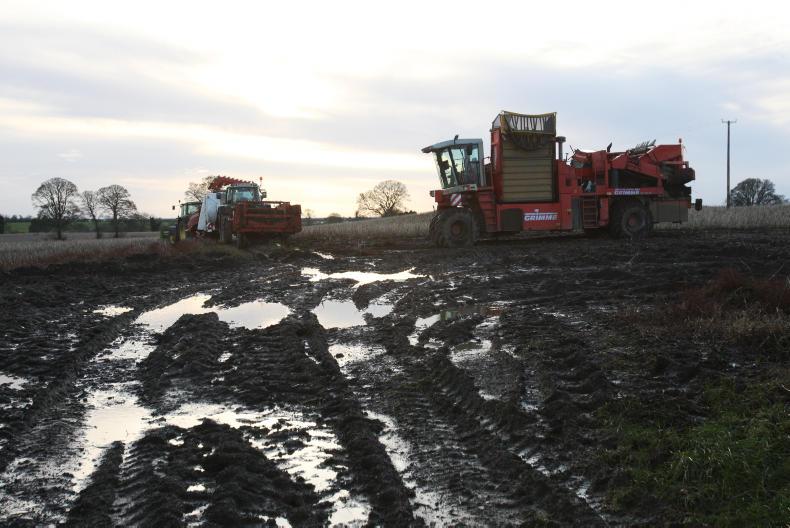Time to shut up shop: After many false dawns promising spells of better weather, many areas of the country remain far too wet to even consider planting in the next while. Now that we are in December it would take three weeks to get land soaked so it may be sensible to park up the machinery. But there may be people who can get a little done.
December is traditionally regarded as a dormant month that brings very little in the way of growth, with crops normally taking over six weeks to emerge. That is a long time to have to protect crops when there is little or no growth in a hungry time for nature.
December might provide opportunity to get some winter ploughing done if land dries out sufficiently. If you can plough, using a furrow press with the plough can bring big advantages for spring.
For land that had been damaged in the backend taking out crops, it is always difficult to know when the best time to plough will be. It may be wet on top but this might not dry out until May if it is not loosened and opened up, especially on heavy ground. It is not possible to advise on the best thing to do because ploughing when wet could see sods drying into slabs. But if it stays wet you might not be able to get in until late spring and then it would be a battle to get a seedbed. It’s really a matter of taking a half chance if you get one and hoping for the best.
Stubbles: While stubbles can now be burned off, it may be a lot better for the land to leave the limited vegetation in place to partially protect the soil and allow the roots to help keep the soil open and loose for spring. So only spray off vegetation if it is carrying significant weeds, pests or diseases. Your soil should be bare for as short a time as possible to protect it from rainfall.
Emerging crops: While crops have been very slow to emerge, many are now coming through and the establishment may be better than had been anticipated. The low soil temperature may have helped here. There is really nothing that can or should be done to these fields now, as these emerging seedlings should not be stressed further for the moment.
Crows: Crows remain very active in places and must be monitored. Action may be needed where they are doing damage by rooting for seeds or digging up plants.
ITLUS conference: In the year of its 50th anniversary, the theme selected for this year’s conference is Visions for the Future. The conference begins on the evening of 4 December and continues on 5 December. It addresses a range of topics and challenges for the decades ahead. Speakers include Colm McCarthy, Cara Augustenborg, Prof Gerry Boyle and Bill Callanan from the Department of Agriculture. Topics include rural Ireland, the environment, the place of tillage, plant protection and plant breeding technologies and the direction of mechanisation into the future. Contact Eugene Ryan at itlussec50@gmail.com for information.






 This is a subscriber-only article
This is a subscriber-only article










SHARING OPTIONS: